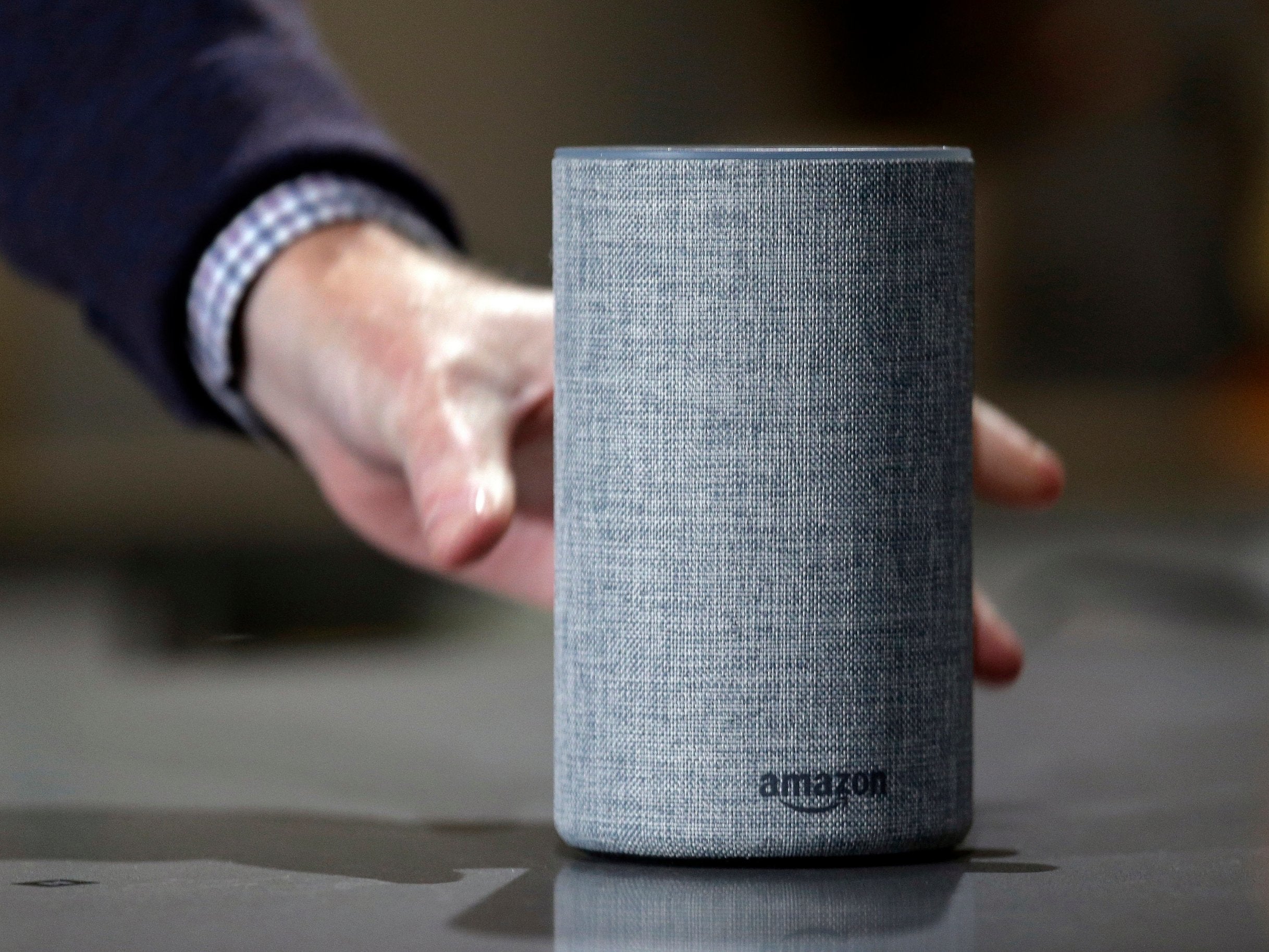Alexa and Google Home have capacity to predict if couple are struggling and can interrupt arguments, finds study
In-home listening devices 'can identify optimal ways to discuss common problems and alleviate misunderstandings', says report author

Your support helps us to tell the story
From reproductive rights to climate change to Big Tech, The Independent is on the ground when the story is developing. Whether it's investigating the financials of Elon Musk's pro-Trump PAC or producing our latest documentary, 'The A Word', which shines a light on the American women fighting for reproductive rights, we know how important it is to parse out the facts from the messaging.
At such a critical moment in US history, we need reporters on the ground. Your donation allows us to keep sending journalists to speak to both sides of the story.
The Independent is trusted by Americans across the entire political spectrum. And unlike many other quality news outlets, we choose not to lock Americans out of our reporting and analysis with paywalls. We believe quality journalism should be available to everyone, paid for by those who can afford it.
Your support makes all the difference.Virtual assistants such as Amazon’s Alexa and Google Home have the capacity to analyse how happy and healthy a couple’s relationship is, research has found.
In-home listening devices will soon be able to judge how functional relationships are as well as interrupt an argument with an idea for how to resolve it, the study said.
The research, by Imperial College Business School, stated that within the next two to three years, digital assistants could predict with 75 per cent accuracy the likelihood of a relationship or marriage being a success.
The technology would reach a verdict through acoustic analysis of communication between couples – examining everything from everyday encounters to arguments.
The virtual assistants would then be able to provide relationship advice and what researchers refer to as democratising counselling.
Aparna Sasidharan, from Imperial College Business School, said: “Artificial Intelligence (AI) could have a significant impact on communication patterns in relationships, specifically benefiting women in heterosexual partnerships.
“Research suggests that men tend to prioritise ‘report talk’ – analysing issues and solving problems in a direct and factual way. There are many instances where this is useful in everyday life, but in relationships, it can result in not communicating in a way that builds and strengthens relationships – ‘rapport talk’.
“AI can pick up missed cues and suggest nudges to bridge the gap in emotional intelligence and communication styles. It can identify optimal ways to discuss common problems and alleviate common misunderstandings based on these different priorities and ways of viewing the world. We could be looking at a different gender dynamics in a decade.”
The research, which looks at how AI and machine learning will influence love and relationships, also looked at how technology could change dating.
Ms Sasidharan added: “With AI, online dating version 3.0 is upon us. While traditional algorithms were limited to recommending profiles, these days they can predict compatibility, enhance dating experiences and help manufacture chemistry.
“But in another decade we could be seeing revolutionary changes with dating apps moving to continuous relationship coaching or marriage counselling as well as improving relationship health and helping people project a more attractive persona.
“AI is changing our perceptions of love and relationships and could play a significant role in shifting familiar societal approaches to finding love.”
The research suggested stressing over your dating profile on an app or website could become obsolete within six years – with a mixture of AI and genetic matching predicting sexual chemistry and compatibility between singles looking for a relationship.
Each person’s genetic code – backed up by physiological data from wearable tech – will be used to predict sexual chemistry and match-making will be carried out in labs.
Prateek Jain, of online dating site eharmony, which was involved in the report, said: “It’s also entirely possible that as technology evolves, further virtual assistants combined with compatibility matching systems such as ours will not only help singles pinpoint their most compatible matches, but act as a therapeutic resource within a relationship.”
Scientists have already been examining sophisticated methods to gauge sexual attraction via monitoring for increased heart rate or blood pressure and using wearable tech to follow eye contact or frequency of touch.
These readings will be combined with analysis of MHC genes, which are central in mate choice. Present models suggest better matches between couples occur when these genes are more diverse.
According to the research, in a decade, experts will be able to gauge sexual chemistry between strangers without them ever having met.
Dating apps are already using AI to suggest where to go on a first date, recommend what to say and even find a partner who resembles the person’s favourite celebrity.
Join our commenting forum
Join thought-provoking conversations, follow other Independent readers and see their replies
Comments